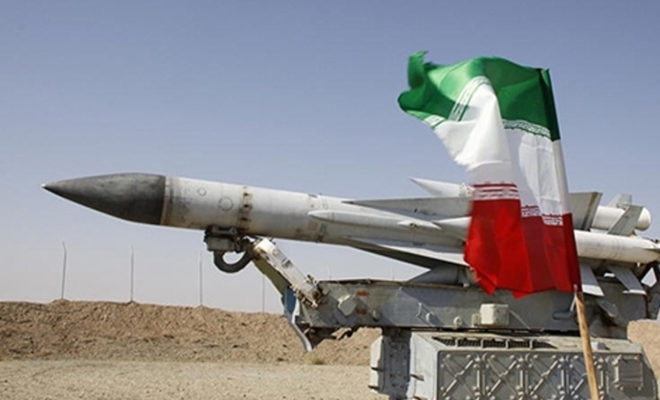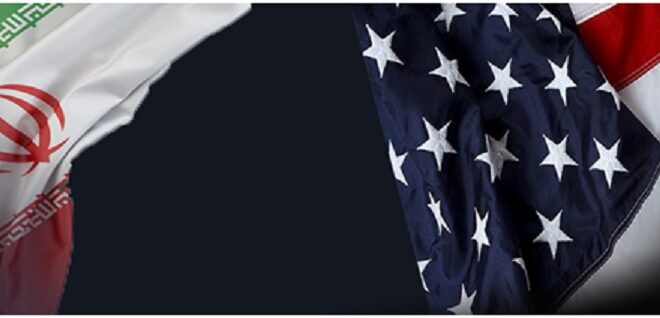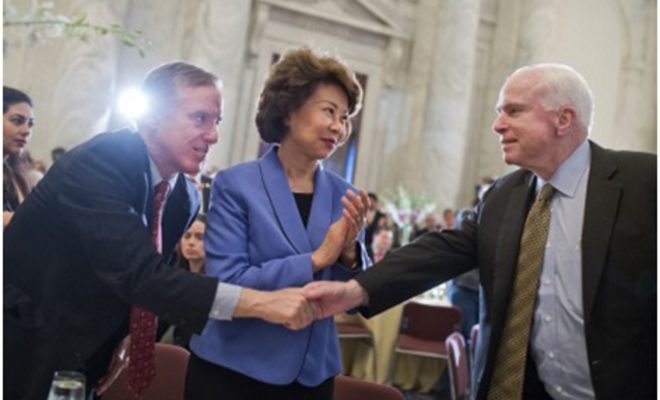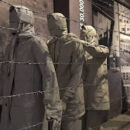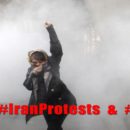Iran Nuclear Weapons Program Active Despite JCPOA, Opposition Says
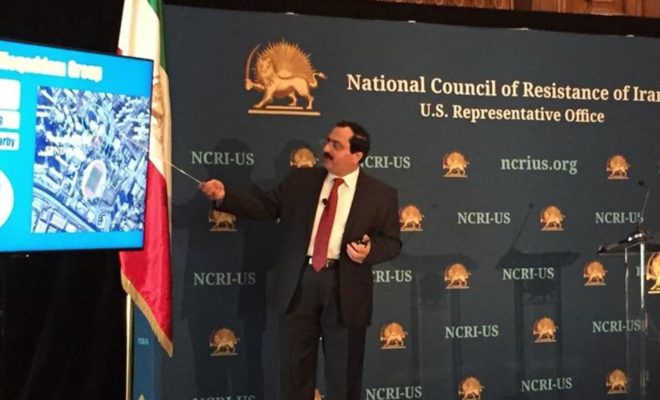
Forbes
Heshmat Alavi – April 21, 2017
Days after the U.S. State Department issued a quarterly report informing Congress of Iran’s compliance with the nuclear agreement sealed between Tehran and the international community back in 2015, the U.S. office of the Iranian opposition National Council of Resistance of Iran (NCRI) in Washington held a press conference Friday shedding new light on how the mullahs’ regime is in fact continuing its effort to manufacture atomic weapons.
The NCRI provided new information on the “nerve center” directing Iran’s nuclear weapons drive and in charge of designing the bomb. This entity is continuing its work and efforts to this day, according to the NCRI.
The engineering unit behind Iran’s nuclear weapons program is dubbed the Organization of Defensive Innovation and Research, known through the Persian acronym SPND. This organization, first exposed by the NCRI back in 2011, consists of seven different subdivisions or sections, each responsible for specific portions and aspects of Iran’s nuclear weapons research.
The NCRI has a history of unveiling Iran’s nuclear activities and especially those focused in SPND. This entity has various secret locations in Tehran, some within the city vicinity and some in the outskirts, and also around Karaj, west of the Iranian capital, which the NCRI is continuing its research into.
The information obtained cited by the NCRI is from within the Iranian regime and obtained through a network affiliated to the People’s Mojahedin Organization of Iran (PMOI/MEK), the largest of the NCRI’s five organization members. This organ is famous for first blowing the while on Iran’s nuclear weapons program in 2002 by unveiling a secret uranium enrichment plant and heavy water site.
The PMOI/MEK has obtained its information from onsite observations and reports compiled by its affiliated sources within the Islamic Revolutionary Guards Corps (IRGC), the Defense Ministry and SPND. This evidence shows Iran has maintained its nuclear bomb-making apparatus intact and their activities have continued without being subsided despite the JCPOA signing.
IRGC Brigadier General Mohsen Fakhrizadeh Mahabadi, aka Dr. Hassan Mohseni, and recognized as the father of Iran’s nuclear weapons program, currently heads SPND and is known to be the key figure in Tehran’s atomic weapons drive.
It is now crystal clear that Iran has actually further expanded its activities and this new information clarifies all of SPND’s subdivisions, now located inside the highly controversial Parchin site in Tehran Lavizan district, are continuing their work without the JCPOA causing any halts or even speedbumps in this regard.
SPND and the possible military dimension (PMD) of Iran’s nuclear program were the subject of an extensive 2011 report issued by the United Nations nuclear watchdog, the International Atomic Energy Organization (IAEA).
The PMOI/MEK has also unveiled new information about a new location associated to Iran’s nuclear weapons project, being kept secret to this day from the eyes of the IAEA inspectors. This led to the US State and Treasury departments in 2014 blacklisting SPND. The IAEA has yet to enjoy no access to SPND sites.
Obvious is the fact that Iran’s nuclear program is not peaceful in nature, as confirmed by US President Donald Trump in his latest remarks after Secretary Tillerson’s report.
The PMD aspect of Iran’s nuclear program were never resolved. Based on Iran’s nuclear program history, this regime has a long record of razing sites and cloaking its efforts from the outside world. Even Iran’s declared sites were acknowledged by Tehran only after the NCRI exposed them and eventually the IAEA gained access to.
The issue at hand that deserves long overdue attention is Iran’s covert efforts regarding its nuclear weapons program. Iran has been able to maintain intact the bigger bulk of its nuclear program, run by the military apparatus. Even the so-called civilian aspects of Tehran’s nuclear effort is under military control.
The international community should not limit its measures to merely monitoring Iran’s nuclear program. The NCRI is now, as ever, suggesting that all the sites referred in Friday’s press conference should be visited by the IAEA and there should be no acceptation of these sites being kept off limits by Tehran.
Secretary Tillerson correctly highlighted how the JCPOA fails to meet the objective of establishing a non-nuclear Iran and merely delays Tehran’s efforts of obtaining a nuclear weapon.
The weaponization aspect of Iran’s nuclear program has not been the focus of drive to contain the mullahs’ devious intentions. This must change. These latest revelations make it necessary for Congress to impose widespread sanctions and designate the IRGC as a foreign terrorist organization. This will send the ultimate message to Tehran, especially at a time when the regime is engulfed in a presidential election crisis
